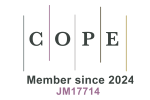Webinar series ‘How to conduct and publish excellent research on traffic safety’—part 4
The upcoming speaker is Geetam Tiwari, Professor Emeritus at the Transportation Research and Injury Prevention Centre (TRIP), the Indian Institute of Technology...


